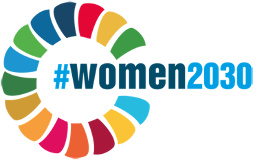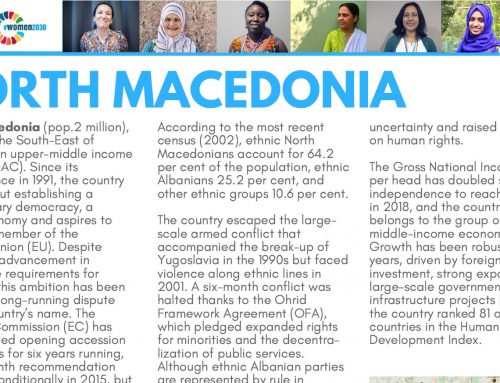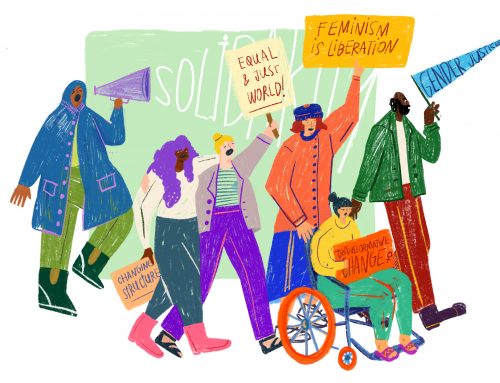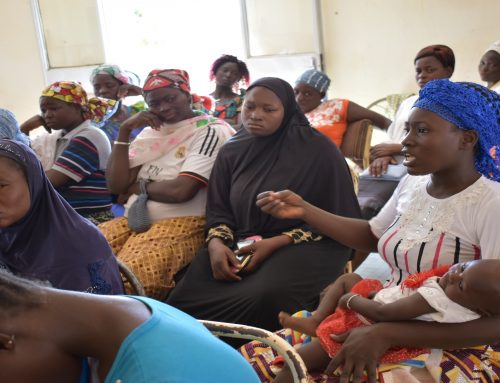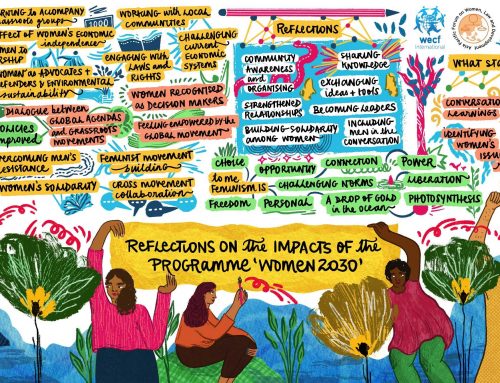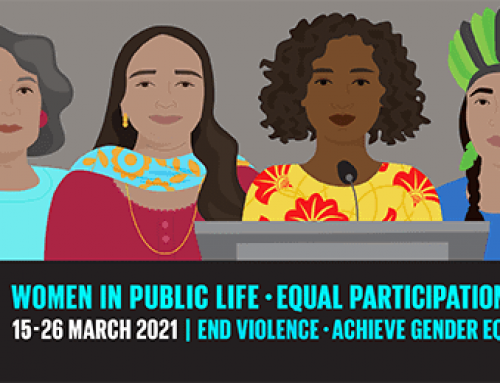“While HLPF is a great space for feminist solidarity, networking, awareness raising and knowledge sharing of best practices, you cannot really shake the feeling of: are we really doing enough to achieve the Sustainable Development Goals?”
As you walked the corridors of the United Nations headquarters during HLPF, you could feel the tension of distress from various actors. At the end of the first week, for example, several countries broke the silence on the Ministerial Declaration.
The outcome document of the conference, which had been negotiated upon for months leading up to HLPF and which at this point is meant to best reflect the countries’ agreed compromises, no longer had consensus.
There was a build-up of frustration as the forum participants asked themselves: have we really come to the point where we are negotiating back on commitments we have already made through Agenda 2030? While HLPF is a great space for feminist solidarity, networking, awareness raising and knowledge sharing of best practices, you cannot really shake the feeling of: are we really doing enough to achieve the Sustainable Development Goals?

Feelings of distress
Despite these feelings of distress, feminists are pushing hard for transformative change, challenging structural barriers on the frontlines and at policy levels. Firstly, we raised our voice about the VNR reporting process. During one of our side-events, Mapping the gap: barriers and opportunities for civil society in VNRs, it became clear quite quickly that many of our Women’s Major Group (WMG) members felt distress in terms of actively being excluded from the reporting process.
Many testimonies indicated that countries would not take adequate steps to ensure an open an engaging consultation process when drafting their VNRs. This exact point was raised by Emma Anakhasyan (RURALDAF, Armenia), one of our #women2030 partners during her interventions at the VNR presentation of her country. She stated that the Armenian NGO sector appreciated the consultations held in advance of the HLPF.
National Reviews or holiday commercials?
However, some civil society sectors were still missing: how will the Armenian Government engage a wider array of stakeholders in the future? Two other #women2030 partners Aleksandra Kumbuli (Women for Development, Albania) and Bridget Acakpo-Addra (WEP, Togo) were also selected to represent civil society during their countries’ Voluntary National Review (VNR) presentation and asked critical questions. However, the 2 minute critical interventions that are allowed to civil society are far from the open and constructive dialogue intended in Agenda 2030. Especially when the VNRs look like inviting holiday commercials. See below for our partners’ full interventions during the VNRs.
#Nodirtybusiness
Secondly, WECF and partners tried to ask attention for corporate responsability. While countries emphasise the importance of the corporate sector in achieving the SDGs at their VNRs, there is no mechanism within the Agenda 2030 process to hold corporations accountable for their externalities. Meaning other countries are left with the bill for human and environmental costs as a result of different countries’ actions and unsustainable production. This proves how important it is that civil society, who live and fight the consequences of corporate capture, is present at HLPF and on national and regional level.
Contributing to the #Nodirtybusiness campaign, WECF aims to move the lens from rhetorics of individuals’ responsibility to live sustainably, to the big polluters who put profit over people. We want them to be held accountable for their actions, and push for system change. Since this year the SDGs under review are all linked to areas where there is corporate capture, it is key that we do some myth busting on their “solutions”.
Shrinking space for women human rights defenders (WHRDs)
Thirdly, in several ways, WECF and her partners raised their voices to a larger audience. A number of factsheets were produced by WECF, WMG and our partners to illustrate a feminist analysis and share demands for the topics discussed at the forum. See below for to find them. WMG’s outreach team, led by our Hanna Gunnarsson used social media (and the hashtags #FeministDemand #HandsOffWHRDs) to reach and engage with a larger audience about the HLPF and the shrinking space for women human rights defenders (WHRDs). Our solidarity dress code campaign was also very successful and made more than 25 million impressions!

Our delegation
Sascha Gabizon (WECF international, Women’s Major Groups UNECE regional organising partner), Hanna Gunnarsson (ibid, stand-in WMG organising partner for the UNECE region), Ida Bakhurdize (WECF Georgia), and our local partners Aleksandra Kumbuli (Women for Development, Albania), and Emma Anakhasyan (Armenian Women for Health and Healthy Environment & RURADALF, Armenia).
Watch the full interventions of our partners at the VNRs here:
•Emma’s intervention: https://www.youtube.com/watch?v=Qx0QvOaXcaU
•Sascha’s intervention: https://www.youtube.com/watch?v=fqgFJnmpeBU
•Bridget’s Acakpo-Addra (#women2030 partner) intervention: http://www.womenmajorgroup.org/hlpf-2018-acakpo-addras-review-on-togo-vnr/
•Sascha at “Innovation at the HLPF 2018”: https://www.youtube.com/watch?v=vpoonOfbEwY

